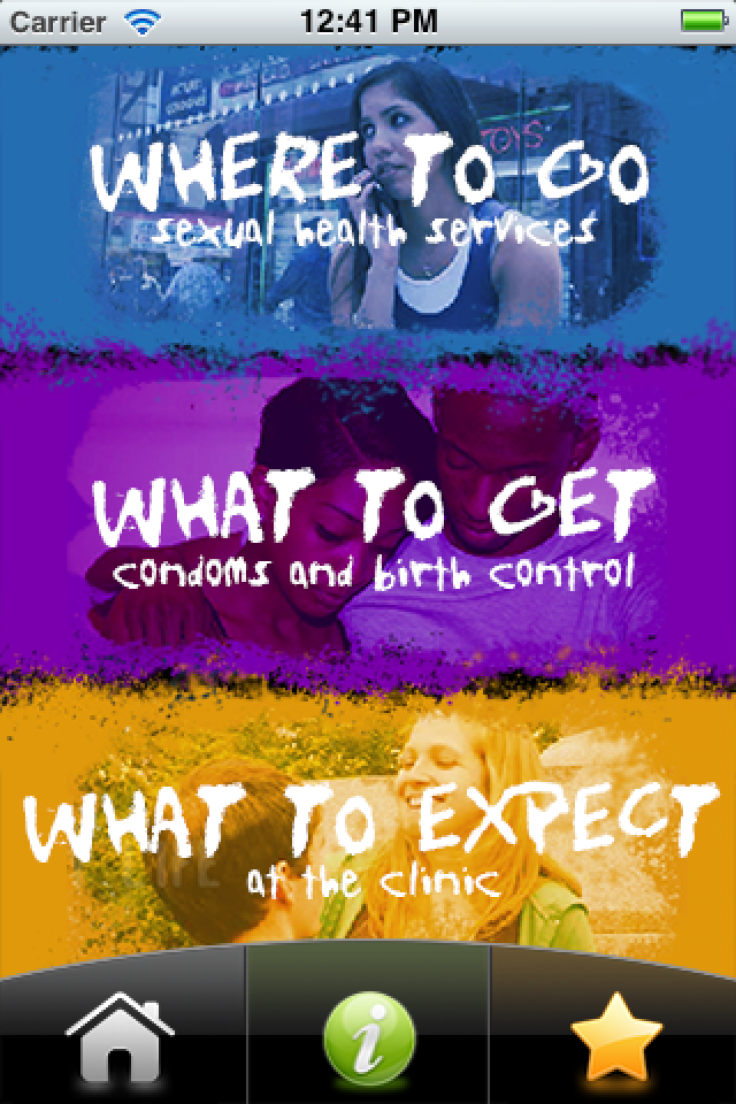NYC Teen Pregnancy Rate Dropped 30 Percent Since 2001; New City-Funded App Aims To Reduce Further

The teen pregnancy rate in the Big Apple dropped significantly over the past decade, but it's still well above the national average. To bring the numbers down further, the city's health department is introducing new measures, including a smartphone app that directs teens to health services.
Data released on Wednesday showed that New York City’s teen pregnancy rate fell from nearly 99 pregnancies per 1,000 teenage girls in 2001 to around 69 per 1,000 in 2011, a drop of about 30 percent. The rate of 69 pregnancies per 1,000 girls works out to about 17,000 teen pregnancies each year. Some areas of the city are doing worse than others: The Bronx has the highest teen pregnancy rate of all five boroughs, with nearly 96 pregnancies per 1,000 girls.
“The City’s efforts over the last decade have already led to fewer teens becoming pregnant each year in New York City,” Deputy Mayor Linda Gibbs said in a statement. “Health care guidelines created through the Young Men’s Initiative will help even more teens avoid unintended pregnancy so they can finish their education.”
New York is doing better than some other major metropolitan areas. In 2008, Washington, D.C., had one of the highest teen pregnancy rates in the nation, with 112 pregnancies per 1,000 girls. The national average for live births to teens was 31.3 per 1,000 among girls aged 15 to 19 in 2011, according to the U.S. Centers for Disease Control. (Since the city's data lists pregnancies per 1,000 girls, not live births, it's not a perfect comparison.)
But to bring New York's numbers down even further, the city health department has developed a smartphone app to help teenagers find providers of free and confidential reproductive health services. The app, called “Teens in NYC Protection +,” allows users to find sexual health clinics in all five boroughs that offer a range of services, including condoms, birth control, HIV testing, abortion and counseling.
“Health care providers at New York City’s public hospitals and health centers recognize that adolescents have specific needs, and we are prepared to meet those needs regardless of a teenager’s ability to pay or immigration status,” Alan D. Aviles, president of the New York City Health and Hospitals Corporation, said in a statement Wednesday.
While the app’s big public debut comes this week, it was first made available in March – prompting some objections from groups that think it will lead to more sexual activity among teenagers.
"I'm a big proponent of parental consent," Frank Russo, president of the American Family Association of New York, told CBS News in March.
Planned Parenthood of New York City spokesperson Haydee Morales said her organization is pleased with the city’s progress in reducing teen pregnancy.
“Teens in New York City have the right to receive reproductive and sexual health care,” Morales said in a statement on Wednesday. “With innovative and inclusive initiatives like this new smartphone app, New York City can continue to reduce teen pregnancy.”
The relationship between city officials and Planned Parenthood hasn’t always been as cordial in recent months.
In March, the city unveiled a new poster campaign that went up in subway trains and bus shelters, especially in neighborhoods with higher rates of teen pregnancy. One poster features a crying child staring at the viewer, with the caption: “I’m twice as likely not to graduate high school because you had me as a teen.”
That advertisement and others in the campaign drew swift criticism from both reproductive health organizations and teen mothers. Planned Parenthood said the campaign was “stigmatizing” and “fear-based.”
“Hurting and shaming communities is not what’s going to bring teen pregnancy rates down,” Morales told the New York Times in March.
But city officials say it’s important to emphasize the negative, life-altering consequences of teen pregnancy.
“We think it’s important to speak frankly and in a way that people will hear about the responsibilities of parenthood and the responsibilities of raising a child,” Robert Doar, commissioner for New York City’s Human Resources Administration, told the Times.
© Copyright IBTimes 2024. All rights reserved.











